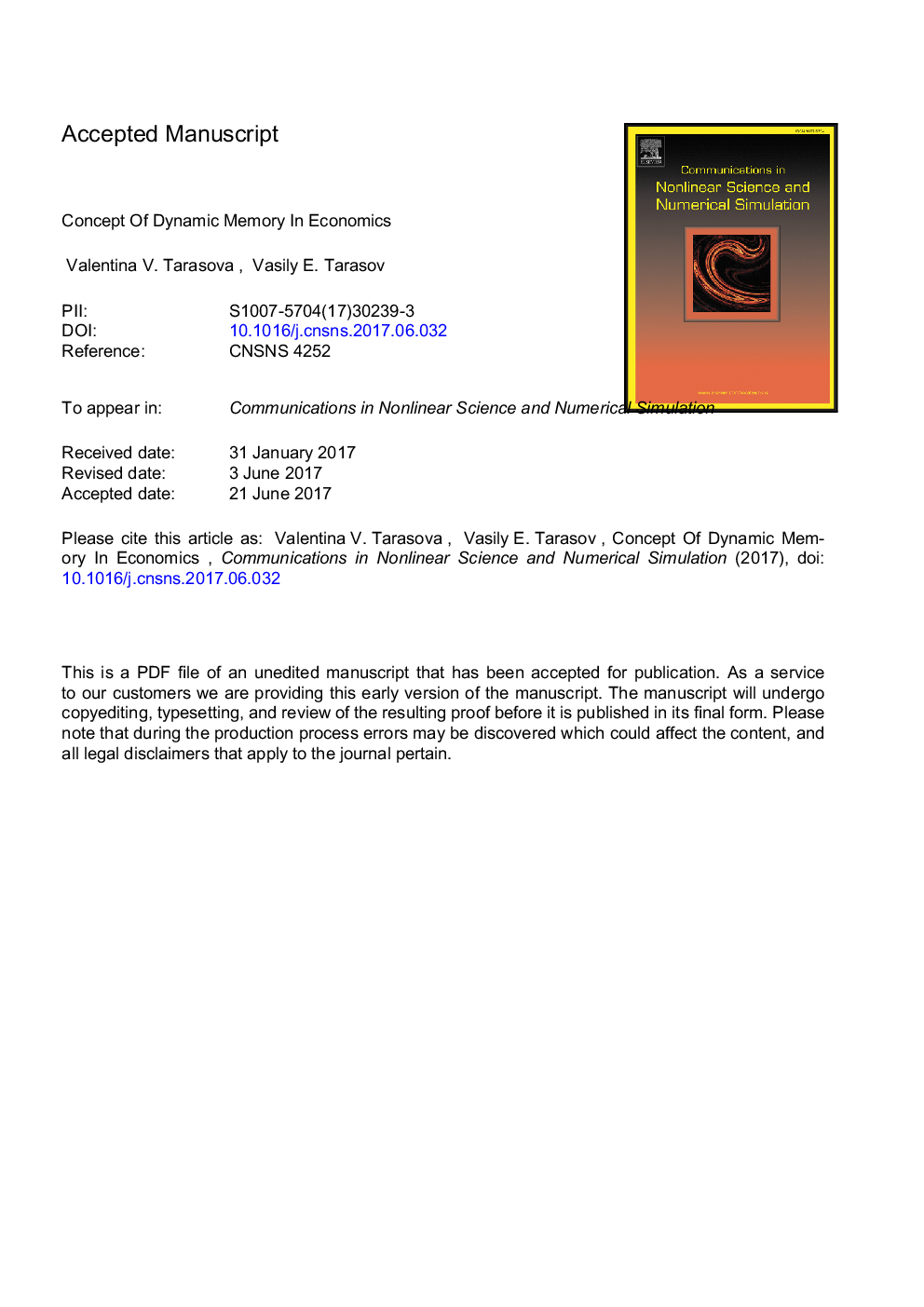| Article ID | Journal | Published Year | Pages | File Type |
|---|---|---|---|---|
| 5011462 | Communications in Nonlinear Science and Numerical Simulation | 2018 | 34 Pages |
Abstract
In this paper we discuss a concept of dynamic memory and an application of fractional calculus to describe the dynamic memory. The concept of memory is considered from the standpoint of economic models in the framework of continuous time approach based on fractional calculus. We also describe some general restrictions that can be imposed on the structure and properties of dynamic memory. These restrictions include the following three principles: (a) the principle of fading memory; (b) the principle of memory homogeneity on time (the principle of non-aging memory); (c) the principle of memory reversibility (the principle of memory recovery). Examples of different memory functions are suggested by using the fractional calculus. To illustrate an application of the concept of dynamic memory in economics we consider a generalization of the Harrod-Domar model, where the power-law memory is taken into account.
Keywords
Related Topics
Physical Sciences and Engineering
Engineering
Mechanical Engineering
Authors
Valentina V. Tarasova, Vasily E. Tarasov,
